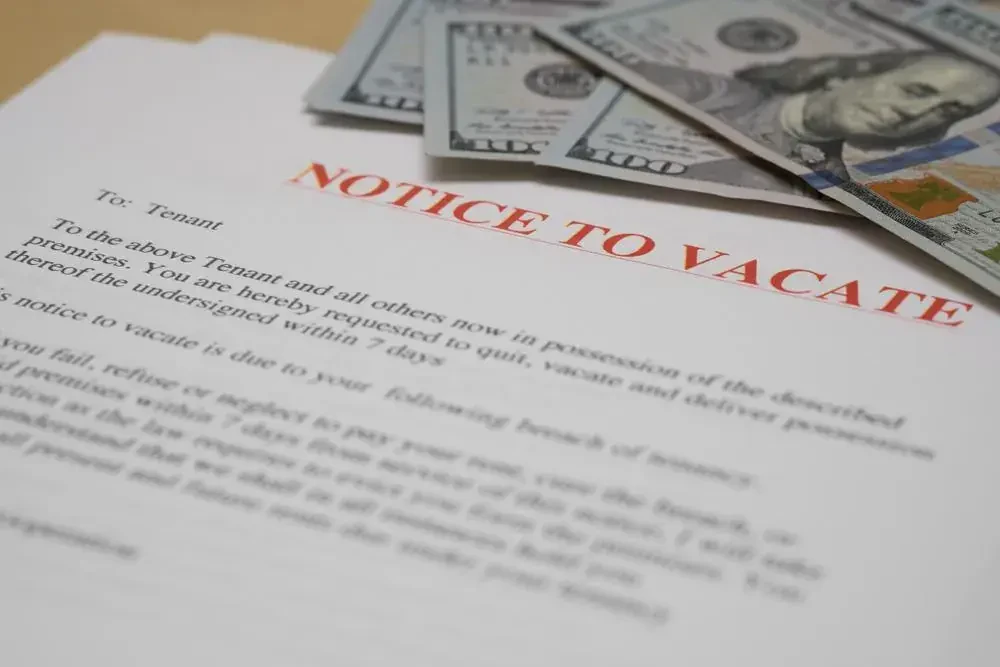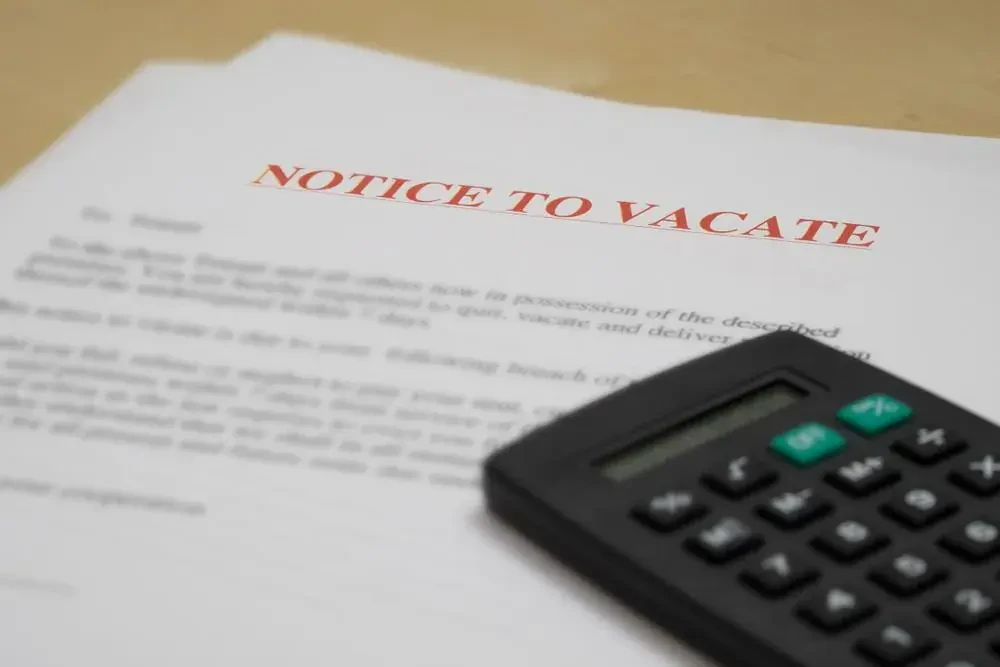Published by Chris Townsend
Last updated Jun, 26 2025

In New York, a 14-day notice to vacate is a formal notification issued by a landlord to a tenant, requiring them to either pay overdue rent or vacate the property within 14 days. This notice is a legal prerequisite for landlords before eviction for non-payment of rent.
In New York, the 14-day notice to vacate plays a crucial role in the landlord-tenant relationship, particularly in cases of rent delinquency. This notice serves as a legally mandated step, providing tenants with a defined period to address the issue of overdue rent. Understanding the specifics of this notice, including its legal framework, language, and delivery method, is essential for landlords and tenants navigating the complexities of rental agreements in New York.
Exploring the Legal Framework Backing Up the 14-Day Notice to Vacate
The New York Civil Practice Law and Rules and Real Property Actions & Proceedings sections govern tenant rights and evictions. The New York State Home and Community Renewal (HCR) oversees these ordinances for fairness. Before evicting a tenant for nonpayment of rent, landlords must give a 14-day notice to vacate under state law. This mechanism gives renters time to fix their mistakes or find new housing.
The 14-day notice to vacate must be written clearly and follow strict New York law. This notice must also be served personally to the tenant and state the reason for eviction, the rent due, and the departure date. Landlords must also prove the tenant received the notice. Failure to follow these procedures may invalidate and unenforce the notice.

Deciphering the Language
The unfamiliar terminology in legal documents can be intimidating. The 14-day notice to vacate language is no exception. Landlords and tenants must understand this terminology to understand their duties. It's important to understand the "cure period," which is the timeframe a tenant has to fix a violation, and "service of notice," which describes how a landlord must deliver a notice.
New York's residential laws and regulations add to legal jargon. These laws govern vacation notice details like non-compliance penalties, eviction, and dispute resolution. In the event of non-payment of rent, the landlord must specify the due date and amount. Leaseholders may be at risk if they don't understand the notice's meaning.
The Importance of a Properly Delivered
A 114-day Notice to Vacate is crucial in real estate and landlord-tenant relations. This document alerts the tenant to vacate the premises within a certain timeframe, providing a legal framework for both parties to navigate the often contentious eviction process. In New York and many other jurisdictions, this notice must be delivered according to certain protocols to be legal.
A properly delivered 14-day Notice to Vacate protects landlord and tenant rights. Correct delivery helps landlords recover their property faster. Conversely, it gives tenants a fair chance to find other housing. Legal issues can delay eviction and cost the landlord money if the notice is not properly delivered.

Frequently Asked Questions
A 14-day Notice to Vacate is a legal document issued by a landlord to a tenant, notifying them that they must leave the property within 14 days. This document is primarily used when the tenant has violated the terms of their lease agreement in some way.
The state's landlord-tenant laws govern the 14-day Notice to Vacate in New York. These laws outline the circumstances under which a landlord can issue a notice to vacate and the proper way to deliver this notice to the tenant.
A 14-day Notice to Vacate should clearly state the reason for the eviction, the exact date the tenant must vacate the property, and a statement informing the tenant that they have the right to challenge the eviction in court. It's important to use clear, concise language to ensure there's no room for misinterpretation.
Proper delivery of a 14-day Notice to Vacate is crucial as it ensures that the tenant has received the notice and is aware of the eviction. If the notice is not properly delivered, the tenant could challenge the eviction in court, leading to delays and possible legal complications for the landlord.
In New York, a 14-day Notice to Vacate can be delivered in person, sent via certified mail with a return receipt requested, or left with a person of suitable age and discretion at the tenant's residence or place of business. If other delivery methods fail, it can also be affixed to the property door in a conspicuous place.


